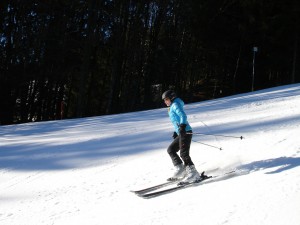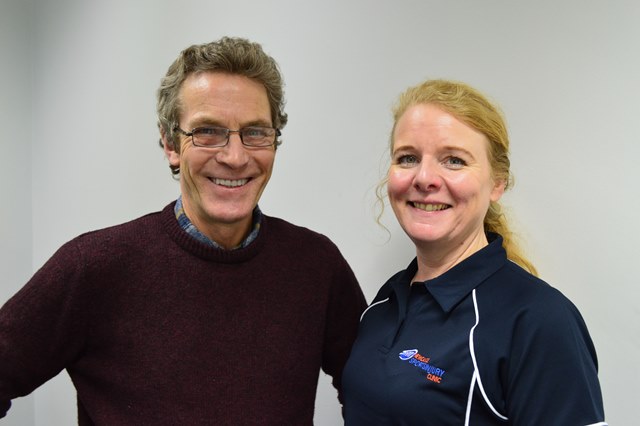 Skiing and snowboarding are both full-body sports, requiring strong core, leg and glute muscles. Strength and balance play an important part in these winter sports, as well as endurance, agility, co-ordination and good reflexes. Preparation is everything!
Skiing and snowboarding are both full-body sports, requiring strong core, leg and glute muscles. Strength and balance play an important part in these winter sports, as well as endurance, agility, co-ordination and good reflexes. Preparation is everything!
Embarking on a holiday on the slopes without preparing your body is a poor decision. We see many people at the clinic that are simply not prepared to go skiing. As a result, they end up injuring themselves within the first few days of the holiday and seeing us when they arrive back in Newcastle.
In order to minimise the risk of injury after your holiday, we recommend getting tailored advice from your physiotherapist one to two months before your holiday. A physiotherapist can identify your current strengths and weaknesses to assess how your body will react to the slopes in order help to prevent injury.
The best exercises for skiers and snowboarders ideally focus on the core and lower body. Developing strength through your core and lower limbs will enhance the stability on the slopes. The clinic run weekly lower limb circuit classes that will help to maximise your strength before you hit the slopes. Sports physiotherapist James will ensure your programme is specific to you. He will progress things appropriately to ensure you’re ski ready.
Pacing your skiing holiday is really important. Fatigue can be a big contributory factor behind many skiing injuries. We always recommend having a plan and to consider having a few rest sessions within your holiday. Knowing your individual capabilities will help ensure you maximise your time on the slopes.
Some common questions we receive from skiers include:
Do I need to warm up?
Warming up before your ski session can help to limit the potential for injury. Generating heat into a muscle will improve your muscles’ readiness to ski. Can you remember those lunges and stretches that we all did at ski school? Those exercises are as important for an experienced skier as it is to the beginner.
What about equipment?
Using quality gear and equipment can also help prevent injury. Make sure your boots aren’t too worn and that you’re wearing flexible clothing for ease of movement. Wear a helmet to protect your head and neck from injury in the case of a fall.
Also, remember to ensure that your bindings are appropriately set for you to ensure they allow the release of your skis in the event of a fall. This should be carried out by a technician experienced in ski preparation.
What should I do if I get injured on the slopes?
If you are concerned about an injury when abroad, go immediately to the nearest hospital or clinic for specialist advice. Injuries that are diagnosed quickly often result in better clinical outcomes.
As soon as you’re back in Newcastle, make sure you have a review with a physiotherapist to ensure you start rehabilitation straight away. We have seen a number of serious ligament injuries at the clinic which require specialist management. These are the patients that benefit from the fast track MRI service that we offer. If things do go wrong, the clinic ensures that you will be scanned straight away so you know what damage has been done.
Don’t forget our clinicians can be contacted on 0191 2330500 for immediate advice on any injuries that you may have.
Get in touch with Newcastle Sports Injury Clinic for tailored advice for your skiing or snowboarding holiday.

